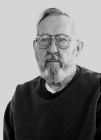






www.oneoffpublishing.com

Most stories begin with the information, “the pilot knew he would fly from the time he learned to walk”. Mine doesn’t. At the height of the depression my folks, unable to find work, piled their possessions into the family car and moved across the state to the far northeast corner of Washington to work with my grandfather cutting wood. They moved into an abandoned log house on Huckleberry Mountain, five miles above Ione, the nearest town, at an elevation of about thirty-five hundred feet. There was no electricity and water was hauled about a mile in tubs in the rear of the car.
My father died in June of 1932 at the age of twenty seven of a ‘heart attack’ while building us a new log house. I began school that fall in the one room Huckleberry Mountain School, at the age of five. The entire student body consisted of my four aunts and uncles, five members of the Mc Arthur family, and myself, spread over the eight grades. For second grade, my mother had moved to Ione and I was enrolled in the big school. One started first grade in the basement and worked – in my case fought might be a better word – one’s way to the third floor for high school. Grades nine through twelve were housed in one building. Some towns have ‘the wrong side of the tracks.’ Ione has ‘across the damn.’ We lived on the wrong side and acquired the name, ‘The Damn Kids.’
I did see one airplane though. Sometime before I finished grade school an itinerant pilot came to town and was selling flights from a farmer’s field in an old WW1 biplane for five dollars for fifteen minutes. That was way above the family budget as my stepfather was earning only four dollars and eighty cents a day driving truck and feeding four kids, but I did get to touch it and smell the clouds of smoke it emitted.
WW2 came along and changed our lives. At Christmas time in 1942 my parents decided to follow my grandparents who had moved to Portland, Oregon, about four hundred miles away, for the big money being made in the shipyards. Journeymen earned one dollar thirty eight cents an hour, over double the wages at Ione. I was sixteen years old and had three uncles and a couple cousins in the various services. I couldn’t wait to join them. In 1943, a guy had to furnish definite proof of age to get a drivers license, but not much to enlist in the service.
But one must deal with mothers. I first enlisted in the Merchant Marines as I felt they would be easiest. My mother un-enlisted me. With the papers from them I went to the Navy and said I had changed my mind, wanted to join a fighting organization. My mother was right behind me again. The Army Air Corps recruiting station was right across the street from the bus station where I frequently saw it. I told her I was going to enlist and they would probably have me in training for a couple years before I saw any action. And if she interfered I would go to Canada where they were already heavily in the war and I would probably be shipped out quickly and she would never find me. She bought it.
It didn’t actually work out that way. I went into The Air Corps in mid February and we arrived in England for Christmas of 1943.
After the war I worked at a variety of jobs. I was hired by the Portland Oregonian, the local metro paper, based on my military experience. From there I went into the new Television News, and the then into public relations for The Portland Public Schools. At various times, between two sessions with the Air Force, I worked at too many jobs to list. A few are: Taxi Driver, a factory that built wooden boxes, a shop rebuilding electric motors, in a wooden boat shipyard, at Property Management, photo coverage of both horse and dog races, owned three Taverns and one Motel. Based on this experience I accepted this little job as Emergency Services Director of Cowlitz County, Washington. This was a nice little public service job, sort of semi-retirement. That is until Mount St. Helens reminded us she was part of my responsibility.
It has been said that I can’t keep a job. I’d rather think of it as a wide range of experience to use as background on which to base my writing. They do say, “Write about what you know.”
I have three books in print. My first published was Mauled, I term a fun mystery. The second book, Ione, Circa 1930, a memoir of growing up during the depression years, began life as a column in the local weekly newspaper. The third, Clouds Are Always White On Top, actually the first one written, is my WW2 air war novel.
Works in progress are: Invitation To Murder, a sequel to the published mystery is about three quarters done. I have about half of a book relating my battle with officialdom when Mt. St. Helens blew her top while in my care. I own and have been rebuilding a forty foot wooden trawler built originally in 1921, and have started an almost nonfiction book detailing my wins and losses during the effort. I have been asked about a sequel to my WW2 book, carrying my protagonist into the non-war in Korea, but it isn’t beyond the thinking stage.

